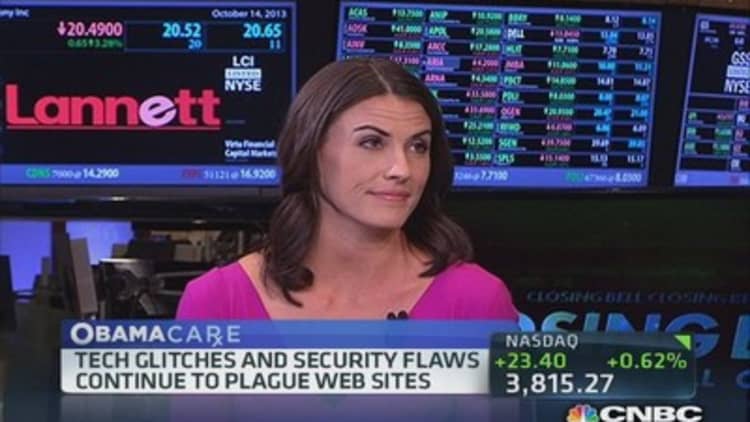Young adults could pay relatively little up front for Obamacare, only to pay a lot later.
They may be more likely to buy cheaper plans on the health care exchanges, but they are often less informed about how high out-of-pocket costs, including deductibles, can erase any savings realized from the lower premiums, potentially leaving them with crippling bills, experts told CNBC.com.
"I think the exposure is pretty high. It's way higher than most people are used to," said Karen Pollitz, a senior fellow at the Kaiser Family Foundation, the health policy research group. "There will be some people who will, for whatever reason, end up getting high-deductible health plans, and I think some of them may not like it."
Under the Affordable Care Act, plans being sold on new government-run exchanges are grouped into four tiers—bronze, silver, gold and platinum—whose monthly premiums reflect the percentage of covered benefits, with the bronze having the lowest premiums.
As a rule, the cheaper a plan's monthly premiums, the higher its deductible and other out-of-pocket costs.
"I was looking at Texas earlier today," Pollitz said. "They had a bronze Blue Cross plan that was $250 a month ... for a 40-year-old. The bronze had a $6,000 deductible, but the silver had a $3,000 deductible."
(Read more: Aetna chief says "so much wrong" with Obamacare rollout)
"The bronze plans, all the ones I've seen, have $5,000 or $6,000 deductibles," she said.

Combine those deductibles with the maximum out-of-pocket costs of $6,350 for individuals and $12,700 for families, and "that's a big exposure," Pollitz said. "It's a little bit of a gamble, and understanding the potential [expenses] is a little bit abstract to most people."
The trade-off of accepting high deductibles for lower premiums will be faced by anyone shopping for insurance, regardless of age.
Though young adults may incur fewer out-of-pocket costs because they tend to use the health-care system less, they could be at particular risk for being surprised by some of those steep costs when they do use it.
Christina LaMontagne, an analyst at NerdWallet, said the price-comparison website had recently found in testing of people between age 27 and 39 that "most people do understand" that low-premium plans have higher out-of-pocket costs, but that people understood co-pays more than deductibles.
(Read more: Obamacare overhaul)
People were more concerned with what they would pay out-of-pocket for a doctor's visit or a prescription than for more involved treatment, such as a surgery with a hospital stay, LaMontagne said, "even though the deductible and the out-of-pocket maximum are the real big-ticket items."
Younger adults are "probably at higher risk for being unfamiliar with some of these terms and how to make these trade-offs," she said, noting that many in that age group have recently relied on parents for their insurance. Older adults, she said, tend to have more experience with insurance.
"People who have had insurance and have lost insurance are going to be able to figure it out," said Catherine Sreckovich, a managing director in the health-care practice of the services firm Navigant.
But many people buying on the exchanges are "just not prepared" for the "huge gulf" between the relatively low-premium plans in the bronze tier and the potential out-of-pocket costs, she said.
According to Sreckovich, one problem is the relatively small effort to educate the public about the health-insurance exchanges, which federal authorities have said need nearly 3 million young adults to enroll to keep coverage costs down for everyone using their plans.
(Read more: "Daily Show" digs at health-care czar)
She said she expected "a lot" of complaints from users who incur those high-deductible costs without having understood them when they signed up.
Asked how the health plans and providers that she consults with view consumers' knowledge gap, Sreckovich said, "I think they're very concerned."
—By CNBC's Dan Mangan. Follow him on Twitter @_DanMangan.


